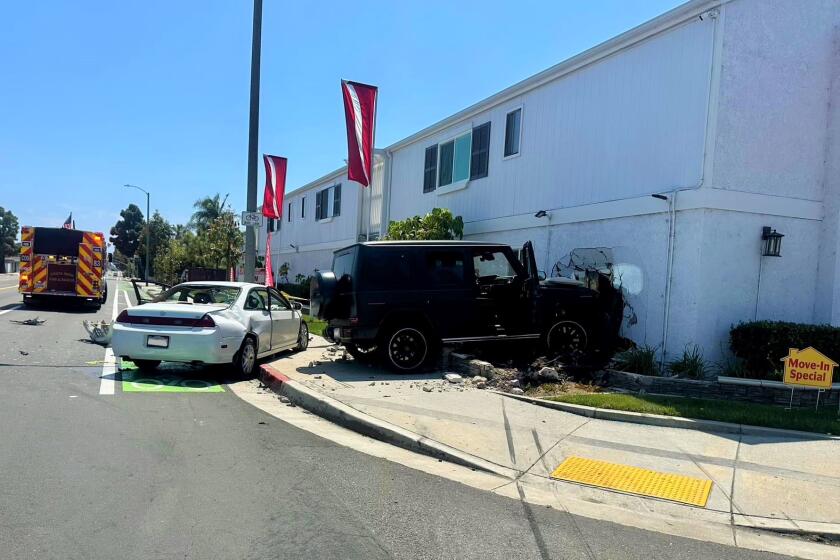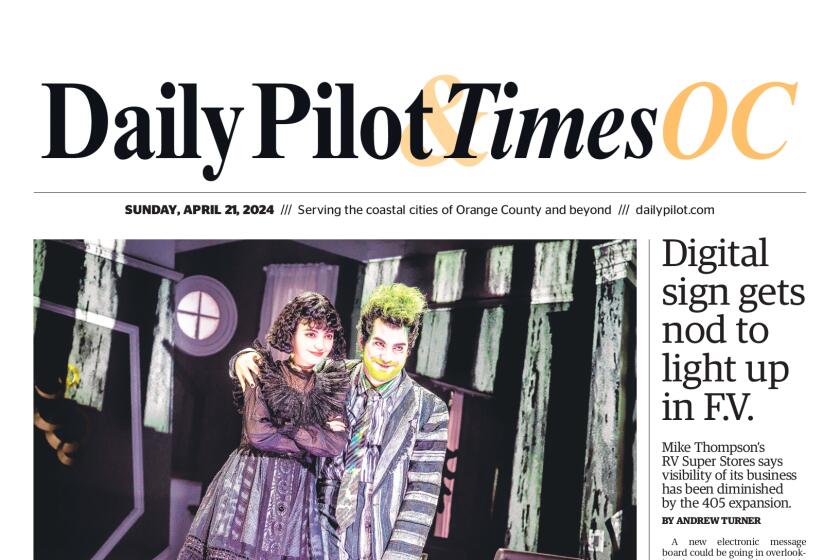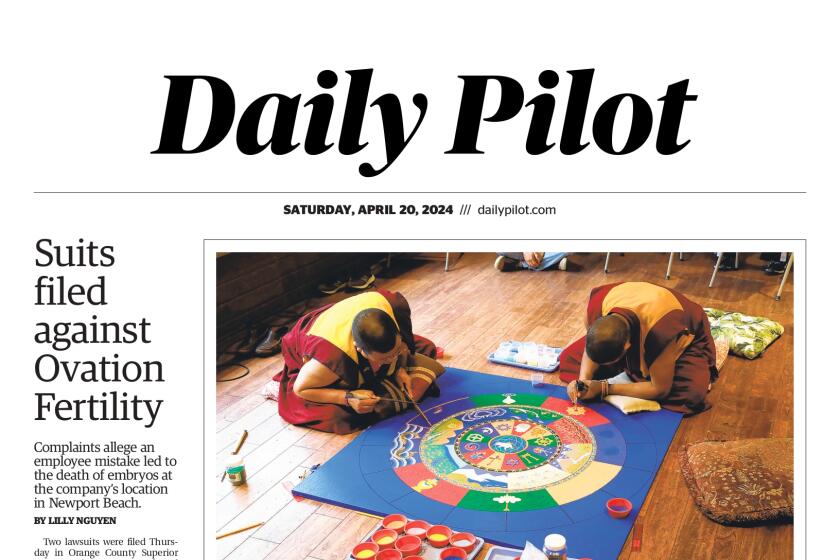Spat erupts over ballot statements for Newport election on financing method
The authors of a statement opposing a Newport Beach ballot proposition have filed an objection with the city after staff did not accept their submission for an official voter information pamphlet.
Local voters are invited to submit arguments for and against ballot items in such pamphlets, which the city and the Orange County registrar of voters office distribute in print and electronic formats in advance of elections.
Former Newport Beach Mayors Keith Curry, Rush Hill and Mike Henn and former Mayor Pro Tem Jean Watt wrote a statement against an as-yet-unnamed measure slated for the November ballot that will ask voters to approve an amendment to Newport’s city charter to require 55% voter approval whenever the City Council wants to spend at least $50 million on capital projects using a financing method known as certificates of participation, or COP.
But local activist Bob Rush also handed in an opposing argument, and because he had written on behalf of his city-registered “association of citizens” or political action committee, Newporters for Ethical Government, City Clerk Leilani Brown pegged his for the pamphlet.
The authors of the rejected argument followed up with a request this past week asking Brown to toss Rush’s argument and use theirs. Their attorney, frequent council critic Phil Greer, argued that Rush’s argument contains factual inaccuracies, that flawed organizational paperwork for Newporters for Ethical Government means it isn’t a “bona fide association of citizens” and that Rush isn’t a true opponent of the ballot measure.
Greer cited some approving statements Rush had made about the measure and Rush’s previous support for Councilman Scott Peotter, who wrote a supporting argument for the proposition with Councilman Kevin Muldoon and Mayor Marshall Duffield.
“The facts and circumstances surrounding the filing of the opposition to the proposed charter amendment are rife with misdirection and misstatement,” Greer wrote. “To allow this statement to be the official statement of those who truly oppose the charter amendment is to silence a significant portion of the public and prevent a true, full and transparent discussion of the pros and cons of the issue.”
In response, Brown said she was following state election code, which gives citizen associations priority over individual voters such as Curry and his allies.
“I respectfully appreciate your client’s disappointment in not having their opposition argument selected; however, California Elections Code … is very clear in how opposition arguments should be selected, and I simply do not have the discretion to stray from what is required under the city charter and state law,” she wrote.
Greer did not return messages seeking comment.
The argument by the former council leaders urges voters, “Don’t be fooled; this measure may sound good, but consider that no other city in California has adopted this restriction. That should tell you that it is not a good idea. … Do you really want to vote on a new police headquarters building or vehicle replacements? Do you want to have to raise campaign funds to get a new park near your home?”
The statement reiterates arguments Curry presented at a City Council meeting in June, when the council agreed to pursue the ballot measure. He said vital big-ticket projects like dredging could be hard sells for residents who don’t live along the harbor and that the timeline from introduction to an election could make bids several months old. That could cause them to expire, contractors to pad their figures to address the financial risk or projects to hit the ballot without cost estimates, he said.
Rush’s argument states the proposed charter amendment “is a good first step” but doesn’t go far enough.
“We should reject it and send it back for a higher two-thirds voter approval threshold and lower $25-million debt ceiling,” he wrote.
In an email, Curry described Rush as a decoy.
“Using a shill like Bob Rush to file phony opposition arguments against a phony ballot measure speaks volumes about the underlying dishonesty of the entire effort,” Curry said.
Rush, who has feuded with members of the rival opposition in the past, said in an interview that he thinks the voter-approval threshold should be $5 million but he was trying to be “reasonable.”
As for their opposition to his opposition: “They can kiss my ass,” he said.
In a certificates of participation arrangement, the city creates a revenue stream by essentially leasing its own facilities to itself — technically, as a different public facilities corporation — with the facilities offered as collateral to bondholders. When the debt is repaid, the facilities become the agency’s — unencumbered by a lease.
Certificates of participation do not require voter approval like general obligation bonds, which lead to increased local property taxes.
The city last used the COP funding mechanism in 2010 for the Civic Center and its park, a $140-million undertaking completed in 2013 with about $17 million in cash and $123 million in certificates of participation. When construction started, it was estimated to cost about $105 million.
Twitter: @Daily_PilotHD
All the latest on Orange County from Orange County.
Get our free TimesOC newsletter.
You may occasionally receive promotional content from the Daily Pilot.




